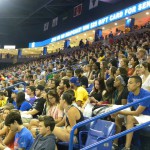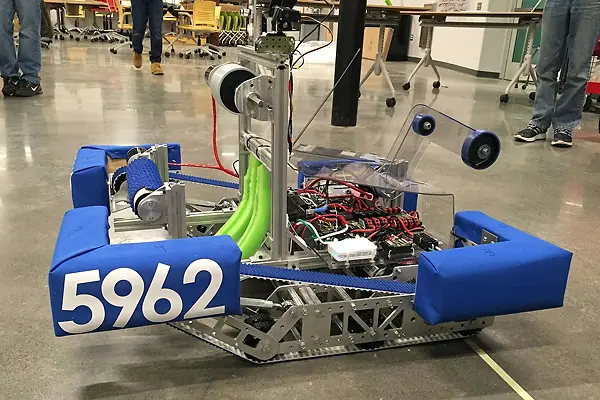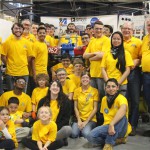Jeffrey Sparshott of The Wall Street Journal recently reviewed an interesting article in the National Bureau of Economic Research working paper series by John Haltiwanger, Henry Hyatt, Lisa B. Kahn, and Erika McEntarfer concerning job place mobility. The conclusion, which perhaps was not surprising, was that small companies were viewed more as potential “poachers” of talent from larger companies, rather than vice versa. To me, this leads to an interesting question for graduates looking to enter the workforce – timely as we just held commencement ceremonies a few weeks ago.
What job is the best fit for me?
Honestly, this is one of my favorite questions to discuss with soon to be graduates: First off, it’s a great question because it means that the soon to be graduate is in a great situation of having multiple job offers. Second, it’s a great question because there is no right answer – but there are surely many aspects to consider which impact people differently. These aspects include location, job title, salary, industry, and, yes, company size, which is often related to culture.
So the question to ponder here is, “What is the better first job, one with a small company – such as a start-up, or one with a large company that is well established?” Again, there is no right answer, but many aspects to consider.
With a large company, there is likely to be more stability, as the company will (generally) have its funding in order and thus can concentrate on its core business. Start-ups are usually in a more precarious position with regards to funding, and thus, their employees are generally at a higher risk of turnover or job loss. Note: large firms are not immune to this, especially firms such as defense contractors that rely on winning government contracts – a lost contract can also mean lost jobs. But in general, large firms tend to be more stable. This may be important if one has obligations and must financially care for dependents.
Of course, the counter to stability can be exciting – working to stay in business can be an exhilarating experience. And for taking the risk, employees are often compensated with stock options such that if the company does make it – the employees still receive a financial “buffer”.
Another factor to consider is professional development. Large companies often have well-established programs that provide employees an opportunity to improve their current job performance, as well as benefit their careers in general. Such training may be “in-house” – soft-skills programs overseen by professional trainers or human resource teams. Some companies may choose to partner with universities to provide training that can lead to certifications and advanced degrees. Many firms may cover the cost of tuition completely (or a percentage), assuming the employee succeeds in the coursework (often measured by the resulting grade).
Small companies, for reasons already noted, do not generally have these training programs in place. However, the training they offer can be equally valuable – on the job training. A strong argument in support of taking a job at a small company is that one will generally have the opportunity to wear “many hats” while at the firm. A budding engineer may get to work on various projects while also selecting and validating potential vendors – a task that normally occurs through a sourcing department in a big company. It may also mean that a civil engineer hired to do some structural analysis will also be writing computer code to implement solutions – again, a task that may be handed off to a software engineering department at a bigger firm. Small company job seekers need to be prepared for the potential diversity in their job tasks, which can be enjoyable. However, one may never achieve the “depth” of a position that they desire.
One “myth” that I believe does exist is that only smaller companies are looking for employees with entrepreneurial mindsets. While smaller companies undoubtedly look for these traits in employees, it should not imply that large companies do not seek employees with these skills. Large companies need similarly thinking employees in order to forge new areas for business, whether it is new product development or expanding current products into new markets. These types of “moves” require thinking that is often out of the box, or entrepreneurial. This is why our Chancellor started the DifferenceMaker program at UMass Lowell – to allow every student to engage in entrepreneurial endeavors during their time on campus.
In Engineering, we have expanded these options to include a prototyping competition, student club competitions, and externally sponsored senior design projects.
An entrepreneurial mindset will help with any future company – whether you are the first, second, or 1000th employee at the firm.

 Congratulations to the investigator team, including UMass Lowell Chancellor Jacqueline Moloney, Ed.D.; Julie Chen, Ph.D.; Meg Bond Ph.D.; Marina Ruths, Ph.D.; and Meg Sobkowicz-Kline, Ph.D.
Congratulations to the investigator team, including UMass Lowell Chancellor Jacqueline Moloney, Ed.D.; Julie Chen, Ph.D.; Meg Bond Ph.D.; Marina Ruths, Ph.D.; and Meg Sobkowicz-Kline, Ph.D.

 Scorpio measures approximately 2½ by 2½ feet and stands 18 inches high. The unit weighs about 120 pounds and is powered by a 12-volt rechargeable battery.
Scorpio measures approximately 2½ by 2½ feet and stands 18 inches high. The unit weighs about 120 pounds and is powered by a 12-volt rechargeable battery.